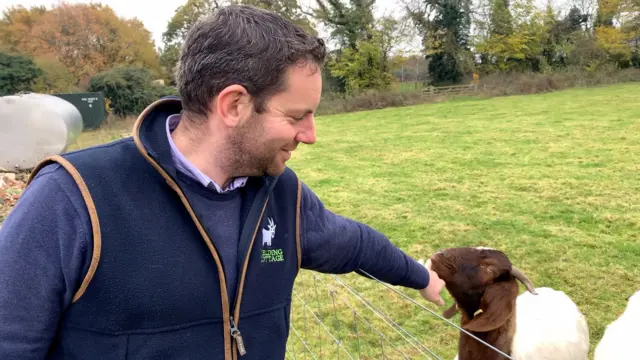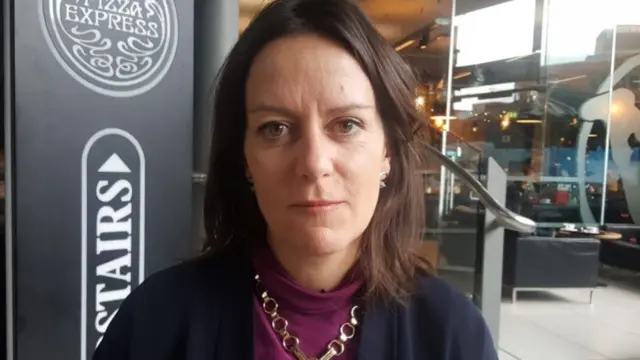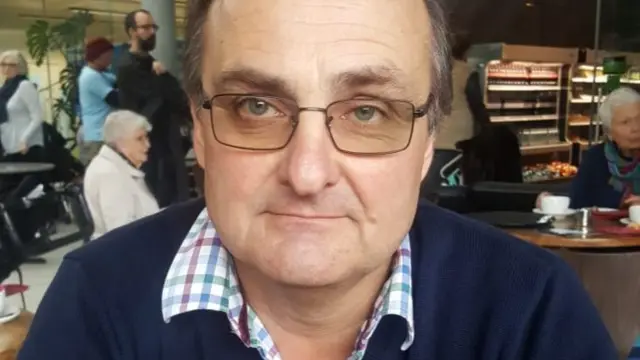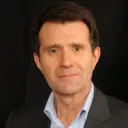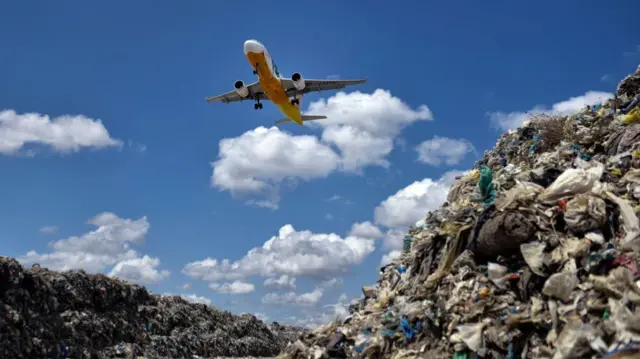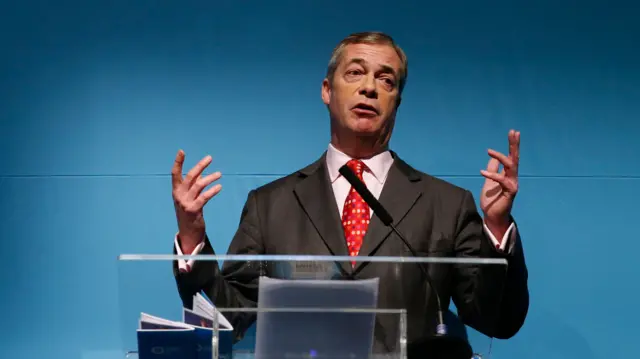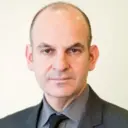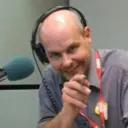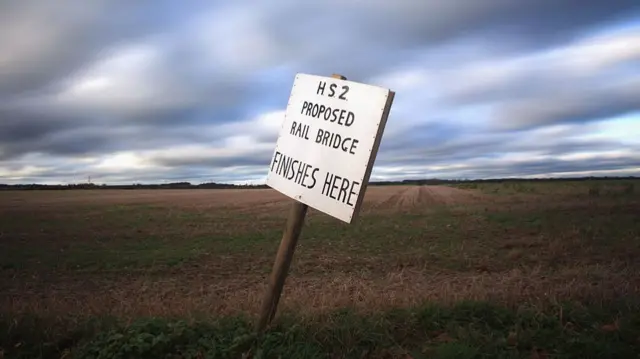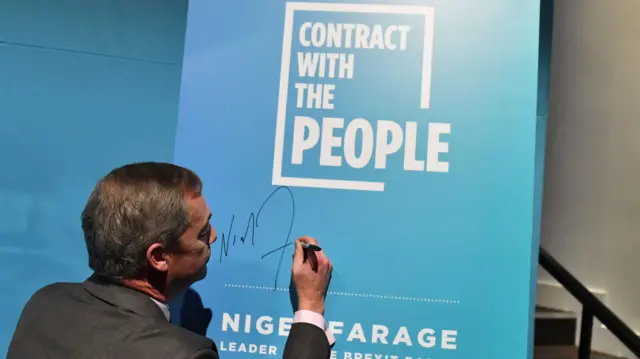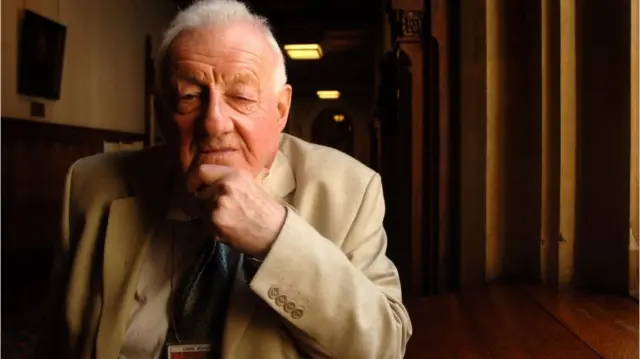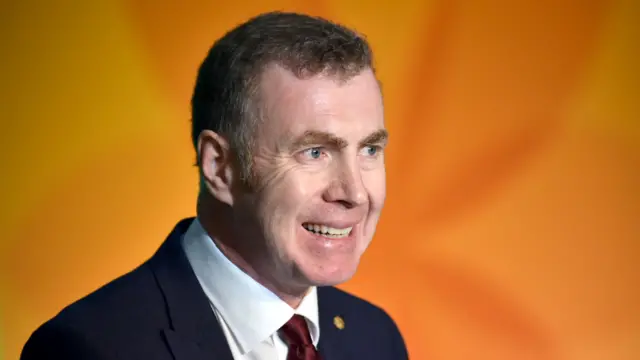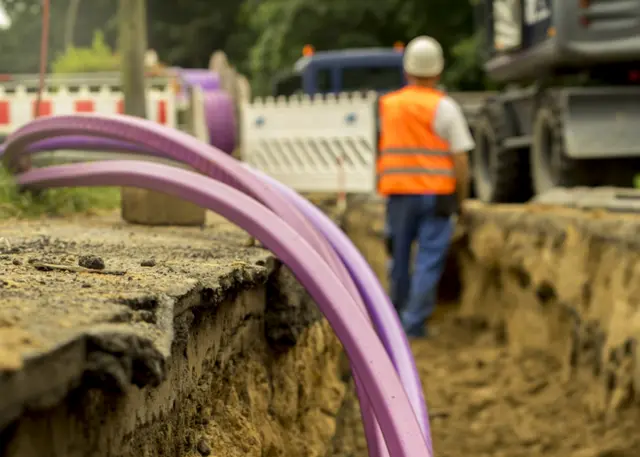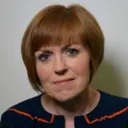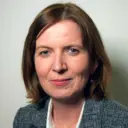What impact could the Brexit Party have in Wales?published at 15:06 GMT 22 November 2019
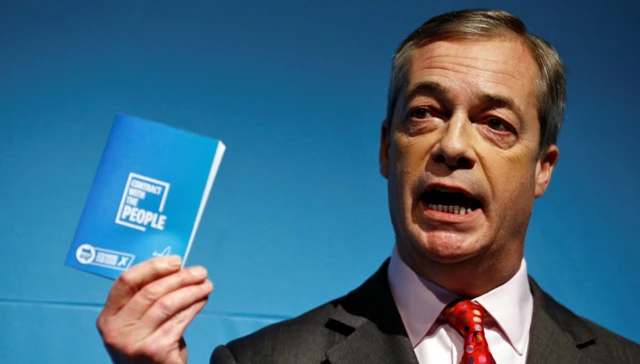 Image source, Reuters
Image source, ReutersAlong with Plaid Cymru, the Brexit Party has also been unveiling its election pledges this morning.
The BBC's Tomos Morgan says Nigel Farage's party will be hoping to do well in Wales, particularly in north-eastern areas where the Brexit Party achieved a high percentage of the vote in May's European elections.
In the 2016 referendum, 52.5% of voters backed Leave - but Plaid Cymru supports remaining in the EU and is calling for another Brexit referendum.
So what impact could the Brexit Party have in Wales?
Our correspondent says it could potentially take some votes away from the Tories in their target seats.
But for voters who do not consider Brexit a key priority, Tomos says it will be a straight battle between the more established parties.

